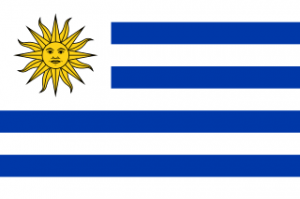 Movimiento Derecho a la Cultura
Movimiento Derecho a la Cultura
LAC Latin America, Link (CC-BY-SA)
2013 has been a year of deep discussions about copyright in Uruguay, which has ended with a copyright law reform intended to add exceptions and remove criminal sanctions for nonprofit infringements. A review of the recent events allows us to contextualize this process.
Trojans in the Law
In July of this year, a brief article included in the Accountability Bill –an “omnibus” bill that is mostly on budgetary and administrative issues–, aimed to increase the copyright term by 20 years to 70 post-mortem. The public questioning of the artist community, which the measure allegedly benefited, and the resistance organized by the #noal218 (‘no to 218′) campaign resulted in the withdrawal of the article, which ultimately was not submitted for voting at the Parliament. Hence, an unprecedented debate about the scope of the restrictions for access to culture imposed by copyright was opened in Uruguay.
However, Article 218 was not the only Trojan detected. The Accountability Bill adopted in October 2013 included another amendment that was identified too late. It is the Article 251 through which the Parliament provides, by way of interpretation, that the Official Electrical Radio Broadcasting Service (SODRE in Spanish) is required to pay for the use of works that are in public domain. This raises a number of objections and doubts not only on ways of implementing Article 251, but also about the very relevance of the public domain payant figure in the Uruguayan law.
But not all were negative additions in the Accountability Bill. Significant copyright exceptions for the benefit of blind and other reading or sensory disabilities were included (Article 237 of the Accountability Bill). In addition, Uruguay signed the Marrakesh Treaty, which once ratified will further strengthen the rights of people with disabilities who suffer huge barriers to reading materials.
Right to study
The impact of the fall of Article 218 was still on when it was overshadowed by another fact that questioned the copyright law: in October, a large police operation with Interpol officials raided a number of photocopying locals nearby universities. This operation included the arrest of dozens of people for the crime of commercially photocopy. Far from having the population’s support, the events turned into a scandal that shook even more students, who were denied access to study materials at exam time. The University Student Federation (FEUU in Spanish) issued a strong statement in favor of free access to knowledge. Days later, the first demonstration in favor of a copyright law reform took place in our country, with a public act and the presentation of more than 10.000 support signatures.
All this led to the recent file of a bill aiming at reforming the copyright law. It has been proposed to expand the educational exceptions and limitations and remove criminal sanctions for nonprofit infringements.
The Role of the University of the Republic
Beyond the opened legislative debate, at the University of the Republic (UdelaR, Uruguay’s public university) the subject is brought into the debate. Open Educational Resources (OER) is been working for months within the UdelaR.
Currently, there are been analyzing different stakes to solve the problem of access to educational materials, highlighted after the photocopiers closing. The Faculty of Law is investigating the possibility of implementing a free publication system. In that context, the UdelaR is part of LATIn Project, a Latin American initiative that promotes the creation and dissemination of free and open books. In parallel, a working group for the implementation of an open access repository for academic articles was formed.
Future
The measures against the access to and circulation of culture —Article 218 and the operation against copiers— faced social rejection and generated a paradoxical effect, which reinforce cultural rights agenda awareness that includes universal access to knowledge.
Following the events of this year, the Ministry of Education and Culture (MEC in Spanish) is committed to promoting public discussion on the subject. In early November, it organized the Citizens Conference “Sumar” on copyright and access to culture. The debate had the virtue of including in a balanced fashion the different views on the subject. As a result, it became available to the public a lot of written and audiovisual materials. In addition, institutions’ report and citizens panel’s conclusions will be elevated to Parliament and the Executive.
To complete the picture, we must add that, for more than a year, the final adoption of an open software and open format bill in the State is pending. The norm, which requires that public administration prioritize these technologies off the proprietary solutions, has civil society’s support, but has been modified and it awaits its ultimate sanction due to the pressures of proprietary software sector. However, it is expected the early adoption of the bill, after a long and complex legislative process.
2014 will be a year of great challenges for students, for the Right to Culture Movement and for society as a whole. The pressures of chambers, the rights management society and the multinational entertainment companies for achieving greater restrictions are strong, but the potential of the whole society with different organization levels is much higher.
We hope the new year finds us building social and legal tools to defend the public domain and access to knowledge and culture.




